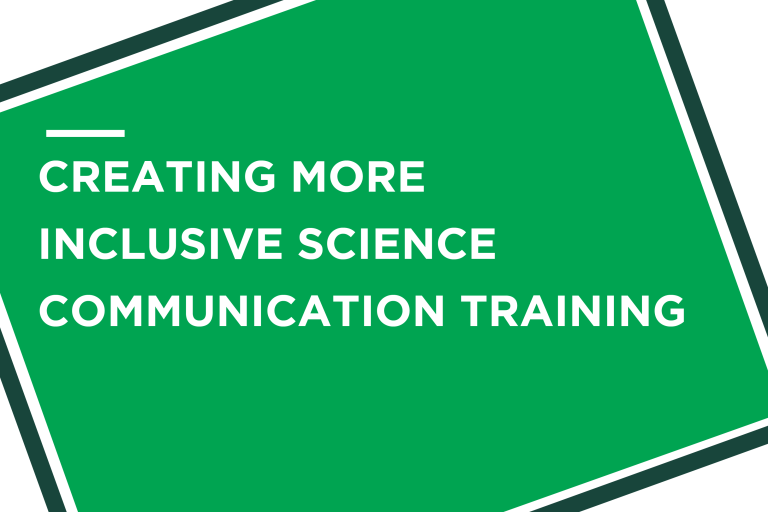A “one-size-fits-all” approach to training doesn’t always live up to its name, especially when it overlooks how culture, identity and race can affect the goals and communication styles of participants.
In September 2021, Michigan State University’s Knight Center for Environmental Journalism partnered with the University of Rhode Island’s Metcalf Institute and Science and Story Lab in a five-year project to build the next generation of science communicators from diverse backgrounds. The project will address the gap in science and communication research and training by delivering training and fellowship opportunities that are inclusive of race, ethnicity, gender, sexual orientation, and social and political identities.
Bruno Takahashi, Brandt Endowed Associate Professor of Environmental Communication in the MSU School of Journalism, is co-principal investigator of the project alongside Sunshine Menezes, executive director of the Metcalf Institute. Additional members of the team from the Knight Center include Eric Freedman and Dave Poulson, as well as three graduate students. Supported by a $2.8 million grant from the National Science Foundation, the project responds to the demand for science communication training that engages diverse communities in conversations about science, combats widespread misinformation, and builds public trust in science.
“Our goal is to advance science communication through training that recognizes and values diverse cultural perspectives,” Takahashi said. “It’s important that training doesn’t take that ‘one-size-fits-all’ approach we’re accustomed to, but is mindful of the relationship between communication goals, practices, and the intersectional identities of science communicators.”
Informed fellowships
Mid-way through the project’s first year, the MSU-URI team is collaborating with several science communication training organizations to collect data and interview scientists through the SciComm Trainers Network. That baseline data, Takahashi said, will be used to shape the direction of a science communication fellowship program—a program slated to run the second, third and fourth year of the project.
A total of 60 pre-tenured faculty will participate in the cohorts and apply their unique experiences and perspectives to their science communication activities. The fellowships will also prepare fellows to engage in science communication activities throughout their careers, and to lead related efforts at their home institutions. By year five in 2026, the MSU-URI team hopes to develop a robust set of recommendations for future training based on a clearer understanding of how diverse scientists relate to and communicate environmental research.
“From a practical perspective, we want to advance systematic change, and widely share our findings and recommendations,” said Takahashi. “Our end goal is to shift science communication training toward a culturally-responsive, evidence-based model that helps more scientists from diverse backgrounds become the go-to trusted sources for their communities, news media and other stakeholders.”
By Ann Kammerer
